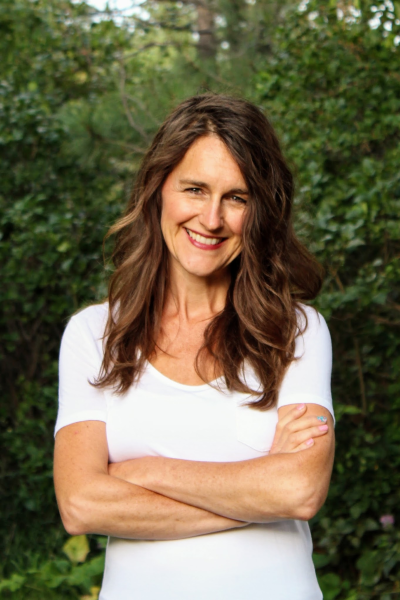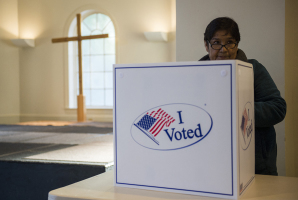Algorithms with an amen

This year I have seen viable paid advertising on social media denied, people’s political posts causing their accounts to shut down, and medical doctors censored for controversial views. These are examples of control being taken away with the deeper implications affecting our freedom of speech. It’s all within the invisible yet powerful algorithms of what we get to see and hear from others – and what others get to see and hear from us.
By definition, algorithms are sets of rules followed by calculations. Simply put, algorithms determine what’s next; they are procedures, processes or instructions designed to perform specific tasks.
Thing is, most algorithms governing today’s world are man-made.
Algorithms determine the perceived relevance, safety, usefulness or desirability of whatever we see, hear or say (be that through a post, video, tweet or snap). Which posts show up – or don’t show up – on Facebook or Instagram is not arbitrary. What comes through – or doesn’t come through – our media news sources or headline banners is not random, either. People creating the algorithms for these control our communication.
While all this relates to social media, politics and pandemics right now, it will relate more and more to our professions of faith in Christ.
What’s a Christian to do as more and more control slips away? How are Christ-followers to respond as powers that we fundamentally disagree with exert more and more authority over us?
Do we slip into despair over our lack of control? Do we shut up and give up? Do we let discouragement or depression rule our lives? When one more vestige of control slips through our fingers, do we just stay at home, lock our doors, turn off the TV and prognosticate that it must be the end of the world?
Any of these approaches might be tempting as the pain of this life keeps bombarding us and especially as the grind of this year wears us down more and more. However, as Christ followers, none of these are the best approaches God wants His people to take.
Here’s the thing: though we do not get to choose all the algorithms that affect us, we do get to choose the algorithms by which we live. In this unparalleled election season of so many choices, our decision about the personal algorithms of our lives is the most important choice that we will make. As the rest of the world spins out of our control, Christ-followers absolutely have control over whether or not we’ll live by God’s algorithms for our lives.
God’s algorithms start with: CHOOSE HIM. In Joshua 24:14-15, Joshua laid out for the people of Israel their trajectory changing moment: “Choose you this day whom you will serve.” Israel had to decide as individuals, families and a nation who they were going to serve, and we must make this decision, too. No choice in life is greater, because choosing God lays the foundation for every other choice thereafter. When we choose to serve Him, we give Him control, putting Him in first place of our lives. Every other algorithm may be out of our control, but we are entirely in control of this algorithm to choose God.
The next of His algorithms, then, is to CHOOSE HIS WAYS. Psalm 25:12 says, “Who, then, are those who fear the Lord? He will instruct them in the ways they should choose.” When we align our heart’s with His, we live by His instructions, letting Him establish the “rules” for our lives. Psalm 119:30-31 says, “I have chosen the way of faithfulness; I set your rules before me. I cling to your testimonies, O Lord…” When we choose His ways, we choose to love what He loves, value what He values, call good what He calls good, and call evil what He calls evil. No longer are our personal opinions, our lifestyles or even our votes simply based on our own logic, feelings, emotions or experiences. Because we’ve already chosen to serve Him, we choose His ways.
All this leads, very practically, to this final decision: CHOOSE A GODLY LIFE. God wants our algorithms to align with His rules, instructions and ways so much that we become evidence to who He is. His Word defines what a godly life looks like. 1 Peter 2:12 says, “Live such good lives among the pagans that, though they accuse you of doing wrong, they may see your good deeds and glorify God on the day he visits us.” Our “good lives” filled with “good deeds” lead to godliness that can point a secular, pagan society to Him. Society may not like us; it may censor our posts or shut down our accounts. However, the world can’t help but like love, respect, honor, dignity and forgiveness. That’s the truth. And we can control the fruit of our lives whether others receive it or not.
Part of this fruit is shown in how we live as citizens in this world. As the election draws closer, we can live by Scripture’s algorithms telling us: “give to Caesar what is Caesars;” and “work for the good of the cities where I have made you go;” and “seize any opportunity the Lord gives you to do good things and be a blessing to everyone” (Matthew 22:21, Jeremiah 29:7, Galatians 6:10). An opportunity to “be a blessing” is to vote according to our biblical convictions. We cannot control the outcome of the election, but we can control what we do at the ballot box.
We can daily choose to live for Jesus and make our lives about Him.
We can choose to love people and bless them whether we agree with them or not.
We can choose to value life, all life, even the lives of those with whom we completely disagree.
We can work for the good of the nation where God has placed us.
We can love the Lord God with all our hearts, souls and strength – and teach the next generation to do the same.
As this year comes to a difficult landing, the vestiges of some things we thought we controlled are going down the drain. Our life’s algorithms may or may not go far on social media; our biblical worldview may no longer be considered even viable in the media.
Nonetheless, our algorithms can never, ever be shut down when we live by God’s standards and His rules of love and mercy, respect and submission, kindness and compassion. These things are, absolutely, in our control.
Making our choices and leading our lives based on our relationship with Him, we live His “Algorithms with an Amen.”
Tosha Lamdin Williams is married to senior pastor Kelly M. Williams and the mother of five. She co-founded Vanguard Church of Colorado Springs in 1997 and started the nonprofit Family Disciple Me, which provides free, easily accessible discipleship resources. Tosha podcasts about weekly discipleship conversations at "It Starts with a Conversation". She is a graduate of Liberty University (BS Communications, 1993) and Dallas Theological Seminary (MABS, 1996).




























